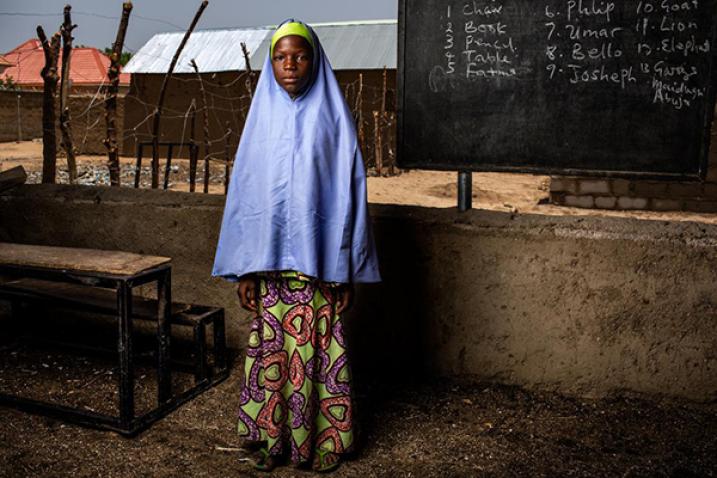Education under attack
Around the world, attacks on children continue unabated, as warring parties flout one of the most basic rules of war: the protection of children. The protracted nature of conflicts today is affecting the futures of entire generations of children. Without access to education, a generation of children living in conflict will grow up without the skills they need to contribute to their countries and economies, exacerbating the already desperate situation for millions of children and their families.
A child’s right to education cannot be safeguarded in conflict zones without education itself being protected. Education can be a life-saver. Out of school, children are easy targets of abuse, exploitation and recruitment by armed forces and groups. School should provide a safe space where children can be protected from threats and crises. It is also a critical step to breaking the cycle of crisis and reduces the likelihood of future conflicts.
The Day draws attention to the plight of more than 75 million 3-to-18-year-olds living in 35 crisis-affected countries and to their urgent need of educational support. It expresses concern over the effects of continued violence on these children and their ability to access education, whose consequences require special attention beyond the needs of learners whose establishments were temporarily closed due to the COVID-19 pandemic.
In proclaiming the International Day to Protect Education from Attack to be celebrated for the first time in 2020, the UN is sending a clear message regarding the importance of safeguarding schools as places of protection and safety for students and educators and the need to keep education at the top of the public agenda. This remains a priority while governments continue to grapple with the COVID-19 pandemic that has led to school closures for more than 90% of the world’s student population.
Background
The day was established by a unanimous decision of the UN General Assembly, calling on UNESCO and UNICEF to raise awareness of the plight of millions of children living in countries affected by conflict. The resolution proclaiming the Day was presented by the State of Qatar and co-sponsored by 62 countries.
The General Assembly resolution affirms that governments have the primary responsibility to provide protection and ensure inclusive and equitable quality education at all levels to all learners, especially those in vulnerable situations. It further emphasizes the need to intensify efforts and increase funding to promote safe and protective school environments in humanitarian emergencies by taking all feasible measures to protect schools, learners and educational personnel from attack, refrain from actions that impede children’s access to education, and facilitate access to education in situations of armed conflict.
UNESCO and UNICEF will facilitate the annual observance of the Day in close collaboration with partners within and outside the UN system. Working on the frontlines in conflict-affected countries, the UN entities have long assisted Member States in strengthening their capacity to provide access to quality educational opportunities for all in times of crisis.
As the world fights to contain the COVID-19 pandemic, children and youth in conflict zones remain among the most vulnerable to its devastating impact. We must ensure our children have a safe and secure environment in which to learn the knowledge and skills they need for the future.”
UN Secretary-General António Guterres
Did you know?
- More than 22,000 students, teachers, and academics were injured, killed, or harmed in attacks on education during armed conflict or insecurity over the past five years.
- Between 2015 and 2019, 93 countries experienced at least one reported attack on education.
- Students and educators were most frequently harmed by direct attacks in Afghanistan, Cameroon, and Palestine.
- Armed forces, other state actors, and armed groups used schools and universities for military purposes in 34 countries between 2015 and 2019, including as bases, detention centers, and weapons stores.
- In the past five years, state armed forces or armed groups reportedly recruited students from schools in 17 countries.
Source: Education under Attack 2020
Resources
- General Assembly resolution establishing the International Day to Protect Education from Attack (A/RES/74/275)
- Global Coalition to Protect Education from Attack
- UNESCO Education in emergencies resources
- UNICEF Education under attack
- International Day of Education
- International Day of Innocent Children Victims of Aggression
- Children and Armed Conflict





